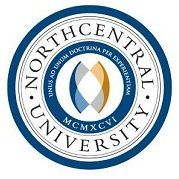
Our economy depends on the safe transfer of digital information, and the systems that manage it. Unfortunately, that information is under constant attack, and at risk of being stolen or destroyed, and those systems can be redirected to serve the aims of cybercriminals. Here are some of the trends in information assurance, cybersecurity and cybercrime today:
- Employment of information security analysts is projected to grow 37% from 2012 to 2022.
- Hackers are stealing $250 billion annually in intellectual property, including weapons designs, source code, trade secrets and, internal communications.
- In 2014, the World Economic Forum found there were 2.5 billion exposed records in the previous five years due to cyber attacks.
- A recent report by Cybersecurity Ventures found that by 2021 cyber attacks could cost the world $6 trillion.
- Last year, the Equifax cyber attack compromised 143 million Americans’ data, and the Identity Theft Resource Center found that hundreds of millions of records were traded on the black market.
- There will be approximately 1.5 million unfilled cybersecurity/information assurance positions by 2020.
- According to a recent CNBC, the average annual salary for a cyber security professional with a Bachelor’s degree is $116,000, and almost double for those holding a Master’s degree.
All this spells out a growing need for information assurance and cybersecurity professionals. With a Doctorate in Information Assurance, you can ensure you’ll be a top candidate in the field. Organizations in all sectors are realizing that it will cost them more not to invest in information assurance than to do so comprehensively. IBM has worked with the Ponemon Institute to estimate the cost of a data breach, and you can be an integral part of stopping them.
Information Assurance Doctoral degrees will prepare you to serve a variety of organizations, and many of the programs on our list were designated as National Centers of Academic Excellence by the National Security Agency and the Department of Homeland Security for their information assurance degrees. You’ll learn to proactively prevent attacks, protect information and systems that come under attack, measure your efforts, do significant research with wide-reaching applications, and much more. Throughout, you’ll build yourself into one of the most demanded professionals in the already booming tech economy.
We ranked these schools based on the following methodology:
- Tuition (cost per credit hour)
- Academic Prestige (national rankings, certifications, etc)
- Flexibility (delivery format, time until completion, special features.
1) Dakota State University

DSU is a public, technology-focused university. It was founded in 1881 in Madison, South Dakota. DSU is known for their graduate and undergraduate programs in computer science, business, education, natural sciences, liberal arts and more. Its motto is, “Technically, we’re better.” It serves over 3,300 students with a1 7:1 student-to-faculty ratio, and most of its graduate students attend DSU primarily online. In 2013, DSU ranked 4th among online schools in the United States on Guide to Online Schools’ rankings that year. It also tied at #32 among top public schools in the 2017 U.S. News & World Report’s midwest rankings. The school has been repeatedly cited by the United States Department of Homeland Security and the National Security Agency as a National Center of Academic Excellence (CAE), and designated for its programming in cyber operations, cyber defense education, cyber defense research, and information assurance research.
DSU offers a primarily online D.Sc. in Cyber Security degree (students take three on-site research seminars as part of this program). Depending on what state you live in you may not be able to take this program online, but be sure to check at the link below. The program was designed for students with a BS or MS in computer science who are looking to add advanced research and practical skills in cyber security. Students will learn important techniques in “data collection, software exploitation, analysis of malicious code, and reverse engineering.” These skills will make you an appealing candidate for intelligence, military, law enforcement, and other organizations that value their data. This program can be taken part or full-time, and requires 3 years to complete (with a Master’s in Computer Science), and a maximum of 7.
- Homepage
- Cost: 1st ($388 per credit hour)
2) Capitol Technology University

Capitol Technology University is a private, non-profit university based just northeast of Washington D.C. It was founded in 1927. Nearly 800 students attend Capitol, which offers a 16:1 student-to-faculty ratio. Capitol offers undergraduate and graduate programming in engineering, computer science, information technology, and business. CTU was designated by Carnegie Classification as a Special Focus Institution in Engineering. CTU is made up of two colleges, its School of Business and Information Science and its School of Engineering and Computer Science. In 2012, U.S. News & World Report ranked Capitol 15th among top online engineering degree programs for student engagement and 43rd for its graduate engineering program in “Student Services and Technology.” It is frequently cited as a “Military Friendly School” by G.I. Jobs Magazine.
CTU offers a mostly online, low-residency Doctorate (DSc) in Cybersecurity. It was the first in the country to offer a program like this, beginning in 2010. In the program you’ll meet likeminded cybersecurity or computer science professionals working together to understand and evaluate systems and technology from organizational, industrial, and global perspectives. Graduates will be ready to do advanced research, use their skills to innovate and create strategies that help an organization’s ability to protect its information, and much more. Students can take electives in this program that supplement their career goals. Elective topics include: healthcare information security, information assurance strategic management and software assurance development.
- Homepage
- Cost: 3rd ($867 per credit hour)
3) Capella University

Capella is a private university known for its online programming. It’s headquartered in Minneapolis, Minnesota. Capella was founded in 1993. In 2000 Capella began offering Bachelor degree programs, and in 2006 it became a publicly traded company. Capella now offers 142 graduate and undergraduate specializations, 25 certificate programs and over 1600 online courses. Capella has over 36,000 students (22:1 student-to-faculty ratio) that come from all 50 states and dozens of foreign countries. The school’s faculty is made up of nearly 1,500 professors, 86 percent of which hold doctoral degrees in the fields they’re instructing in. Capella has open admissions for any student who passes a Capella-approved exam, expanding access to its degrees for students without traditional educational backgrounds. Its business programs have been accredited by the Accreditation Council for Business Schools and Programs since 2014.
Capella offers a mostly online Doctor of Philosophy in Information Technology with an Information Assurance and Cybersecurity Specialization through its School of Business and Technology. It requires 3 residencies, a comprehensive exam, a dissertation, 14 core courses and 5 specialization courses. Whether students want to consult, research, educate, or work in other aspects of IT, this program is a great way to build the skills needed to do so. You’ll apply theory to practice in cybersecurity, build new theoretical constructs in the field, get management experience in information assurance, build communication skills, and much more. Some of the courses you’ll take will include Network Security Advances, Enterprise Security Risk Management, System and Application Security Advances, Assurance Controls and Compliance Management, and Security Governance and Management, among many others. This program has received the NSA and DHS designations as a National Center of Academic Excellence (CAE) for its cybersecurity programming.
- Homepage
- Cost: 5th ($925 per credit hour)
4) Colorado Technical University

CTU is a for-profit, mostly online university. It was founded in 1965. The vast majority of its over 25,500 students attend CTU online, and it has a 28:1 student to faculty ratio. CTU offers degrees through colleges of Business & Management, Engineering & Computer Science, Health Sciences, Information Systems & Technology, Security Studies and Project Management. The school is mostly funded by the Department of Defense and GI Bill, a major employer within Information Assurance. In 2015, CTU was ranked 58th on the U.S. News & World Report list of Best Online Programs. CTU has been consistently recognized for its online degree programs, and its online bachelor’s degree programs have been ranked among the Best Online Bachelor’s Programs by U.S. News and World Report for four years running.
CTU offers a Doctor of Computer Science in Cybersecurity and Information Assurance. It will help graduates become vigilant protectors of data and a scourge on cybercriminals. It can be completed mostly online, with a residency component. The program can be completed in three years, and has been designated a National Center of Academic Excellence in Information Assurance/Cybersecurity through 2021. Sample courses include Enterprise Security Architecture, Futuring and Innovation, Enterprise Tools, Concepts and Processes, and Governance, Quality, Compliance and Ethics, among many others. The program puts significant emphasis on doctoral research and guiding students through building their dissertation. Students will also learn enterprise tools like CORBA and J2EE, XML, RDF, OWL, and UML.
- Homepage
- Cost: 2nd ($598 per credit hour)
5) NorthCentral University

Northcentral is a virtual, for-profit university founded in 1996. It’s a Doctoral Research University headquartered in San Diego, California. It is currently owned by Rockbridge Growth Equity, LLC and Falcon Investments, LLC.
Northcentral offers undergraduate, graduate, specialist, and doctoral degrees through schools of Business, Technology, Education, Health Sciences, Social and Behavioral Sciences. The school’s mottos is “One-to-One Education By Experience.” NCU serves over 10,700 students, and lives by its motto with a spectacular 1:1 student-to-faculty ratio. Its business and computer science degrees are accredited by the ACBSP.
NCU offers a PhD in Computer and Information Security. It trains professionals in cyber-terrorism, computer forensics and computer security. Students will learn how to effectively conduct forensic investigations and handle evidence, explore federal and state privacy laws, intellectual property, search and seizure process and cyber-crime laws, and much more. You’ll learn current techniques in data preservation, identification and extraction, and do forensic analysis on systems with standard examination tool kits. Career options include working as a “researcher or business leader for security initiatives or to work in academia.” The program can be completed in 45 months, requires 60 credits and is comprised of 20 courses.
- Homepage
- Cost: 6th ($1,197 per credit hour)
6) University of Fairfax
Fairfax is a private university that was established in 2002. It’s headquartered in Vienna, Virginia, and is known for its online programming, specifically in cybersecurity degrees. Fairfax specializes in graduate cybersecurity certificates, Master’s and Doctoral degrees, and have become a major supplier of cybersecurity professionals to both the public and private sectors. Fairfax has been named an approved training center by the Department of Homeland Security for its programming, and was named a “Military Friendly School” in 2018 by Victory Media and Military Advanced Education. They also offer a Cybersecurity Crisis Fellowship, which gives fellows significant financial aid while they attend Fairfax.
Fairfax offers an online Doctorate in Information Assurance. It can be completed in 3-5 years. Students will do research on specific cybersecurity problems, use existing research and apply it to problems they solve, measure their solutions’ effectiveness, and much more. The program culminates in a dissertation documenting a student-designed cybersecurity solution and its results/implications according to cybersecurity best practices. This program is focused on proactively solving enterprise level cybersecurity problems, and all of the implications that surround it. It can be taken entirely online, synchronously or asynchronously, which sets it apart from other comparable programs.
- Homepage
- Cost: 4th ($895 per credit hour)

